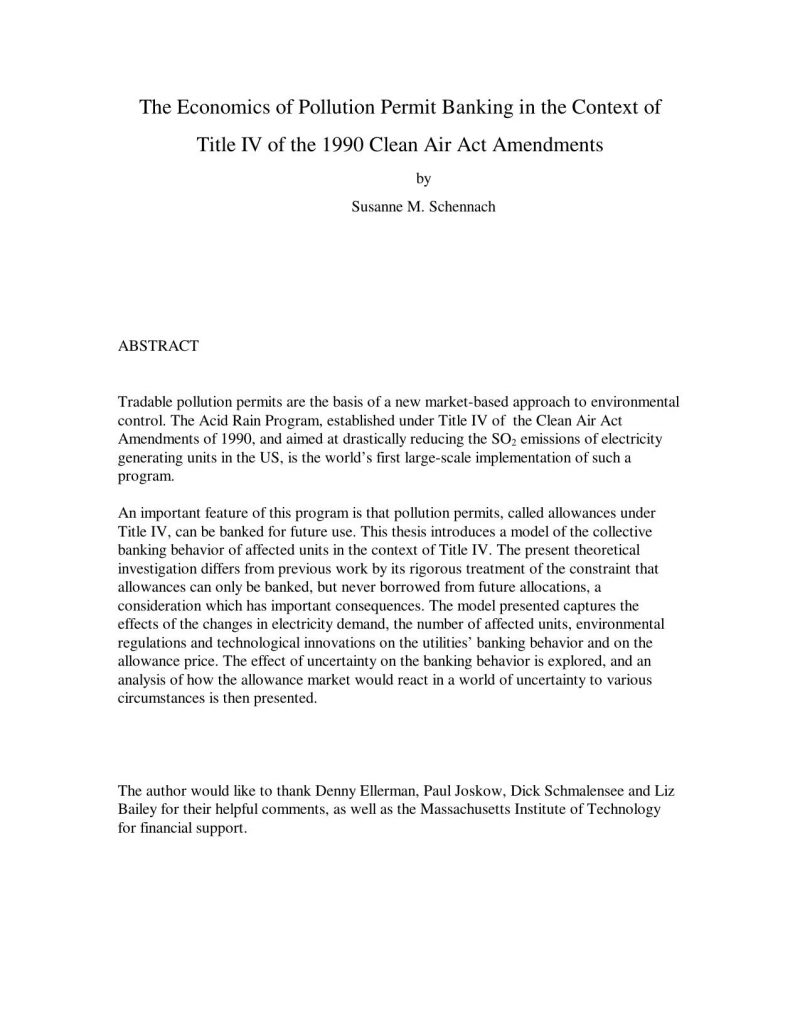The Economics of Pollution Permit Banking in the Context of Title IV of the 1990 Clean Air Act Amendments
Susanne M. Schennach
May-98
Tradable pollution permits are the basis of a new market-based approach to environmental control. The Acid Rain Program, established under Title IV of the Clean Air Act Amendments of 1990, and aimed at drastically reducing the SO2 emissions of electricity generating units in the US, is the world’s first large-scale implementation of such a program.
An important feature of this program is that pollution permits, called allowances under Title IV, can be banked for future use. This thesis introduces a model of the collective banking behavior of affected units in the context of Title IV. The present theoretical investigation differs from previous work by its rigorous treatment of the constraint that allowances can only be banked, but never borrowed from future allocations, a consideration which has important consequences. The model presented captures the effects of the changes in electricity demand, the number of affected units, environmental regulations and technological innovations on the utilities’ banking behavior and on the allowance price. The effect of uncertainty on the banking behavior is explored, and an analysis of how the allowance market would react in a world of uncertainty to various circumstances is then presented.



